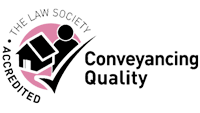Most leases contain covenants that forbid tenants from doing certain things without their landlords' consent, such consent not to be unreasonably withheld. The meaning and effect of such provisions came under Supreme Court analysis in an important test case.
The case concerned the lease of a six-storey building, which permitted its use for, amongst other things, residential purposes. However, a covenant required that no application for planning permission in respect of the building could be made by the tenant without the landlord's consent, not to be unreasonably withheld.
After a subtenant converted two floors of the building – previously used as office and storage space – into flats, the tenant wished to seek retrospective planning consent for that change of use. The landlord refused to consent to such an application on the basis that, if the majority of the building came into residential use, the tenant would have an opportunity to compulsorily acquire the freehold under the process of enfranchisement enshrined in the Leasehold Reform Act 1967.
The landlord argued that such a risk of enfranchisement would devalue its interest in the property. After the tenant launched proceedings, however, a judge ruled that the landlord's consent for the proposed planning application had been unreasonably withheld. That decision was subsequently confirmed by the Court of Appeal.
In upholding the landlord's challenge to that outcome by a majority, the Supreme Court found that it had acted reasonably in protecting the value of its property. The covenant provided it with a real measure of protection against enfranchisement and its refusal of consent was sufficiently connected with the landlord/tenant relationship to satisfy the reasonableness test. Although a third party with no connection to the property could have applied for the same planning permission, free from restraint, the Court noted that that no such application had in fact been made.



